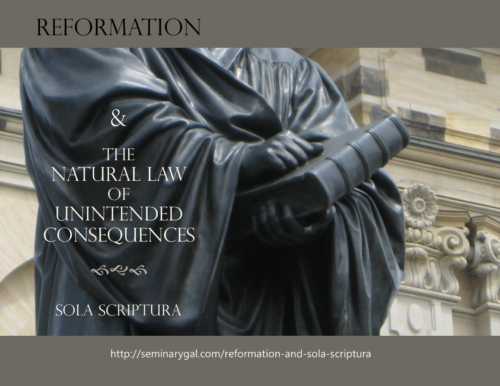The Word. For Martin Luther it was paramount, Sola Scriptura (Scripture Alone). And it was imperative that the people of God should have access to it.
God is present in His Word. To separate the people from the Word of God was to separate people from knowing their God. God’s divinely inspired Word, Scripture alone, unites Christians with a voice that carries from Judea, Samaria, and to the very ends of the Earth. Just what the Gospel is supposed to do.
For Martin Luther Sola Scriptura didn’t end with a belief in the powerful Word of God, “sharper than a double-edged sword” (Hebrews 4:12) but Luther charged forth with faith in action. History.com describes it this way:
The key ideas of the Reformation—a call to purify the church and a belief that the Bible, not tradition, should be the sole source of spiritual authority—were not themselves novel. However, Luther and the other reformers became the first to skillfully use the power of the printing press to give their ideas a wide audience.”

God’s timing is always perfect. All of history belongs to Him.
So, as a man in God’s perfect timing, Luther became a part of church history. Luther’s story also was a story of the power of media to influence our lives, to see God’s mighty hand and His Holy Spirit using it for our good and His glory, something we see repeated with every new means of communication.
When John Piper was asked, “What am I celebrating in [the Reformation]?” Piper replied in a series of responses, one of which was
“The inspired word of God read and known by every Christian is the decisive means of enjoying peace…The church of the Middle Ages cut people off from the word of God. They had done so intentionally. It was a capital crime in the 1400s in Britain to translate the Scriptures into English so that people could read it. They burned people alive for reading fragments of the English Bible, even children. They believed that God did not offer his fellowship to be enjoyed through a personal encounter with him in his word, but rather through the ministry of priests and sacraments. This was evil.”
For Luther, the time had come to consider God’s Word as being something to take out of the hands of pros-only and to give God credit for being perfectly able to take His Word directly to the hearts of His people. The printing press, in the course of history, made that possible.
Of course, all this came with unintended consequences. Some of those include:
- Division between Roman Catholics and Reformers on the view of authority and whether people were capable of reading Scripture without having someone explain it to them and tell them what it meant.
- The newly acquired ability of people to read Scripture came with a decision to remain true to it or to make Scripture say what they want it to say. We now know a slide of compromise redefining truth began.
- The casual access to the Bible convinced some people that Scripture substitutes for community and a daily Bible study passes for involvement in the Body of Christ.
- The power of the written word makes everything seem equally true. Any written word could pass for having the same authority as God’s. Consider all the ink in self-help books on every quasi-spiritual topic thought to stand on an equal level with the Word of God. Which it doesn’t. Nothing compares to Scripture.
Sola Scriptura presents every man, woman, and child with decisions. Will we accept God’s Word as being our spiritual authority, trusting it says what it says, and allow it to change our lives … free from our attempts to change it to suit our lives? In a tumultuous world of media overload, will we make quiet time for God’s Word, unfiltered and unaltered, to minister His peace? Will we consider God’s Word a God-breathed document and treat it as such?
===
The 5 Solas of the Reformation began on October 26, 2017 and can be found in the archives.
- Sola Scriptura (Scripture Alone);
- Sola Gratia (Grace Alone);
- Sola Fide (Faith Alone);
- Solus Christus (Christ Alone); and
- Soli Deo Gloria (To God Alone Be Glory).